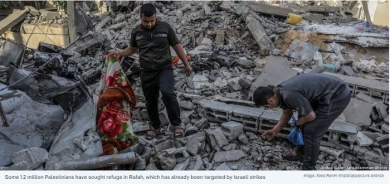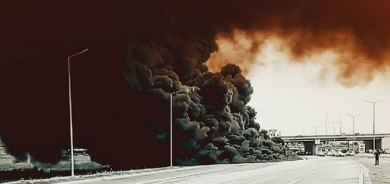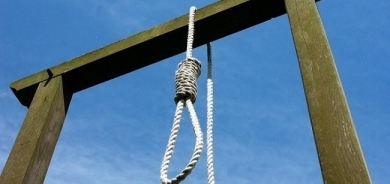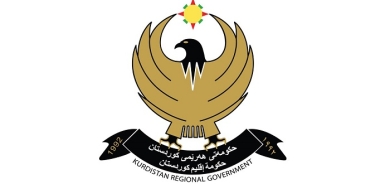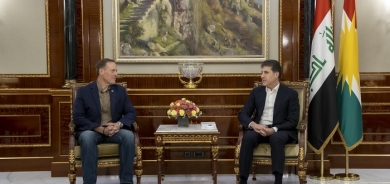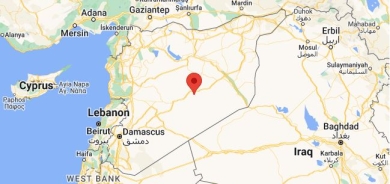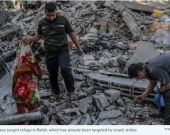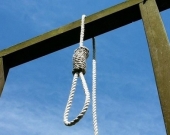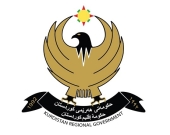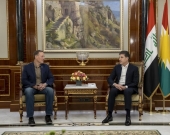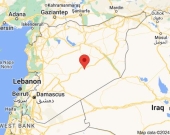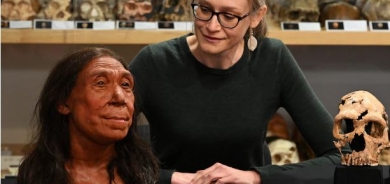President Barzani's Chief of Staff: Kurds Cannot Decide to Replace Maliki Alone
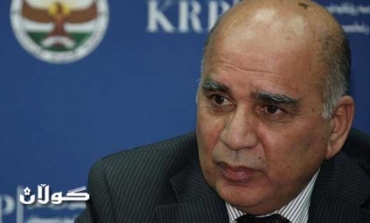
Rudaw: Since 2003, tensions between Baghdad and Erbil, especially with Prime Minister Nuri Maliki, have never been as high as they are now. Do the Kurds have an alternative to current Prime Minister Nuri Maliki?
Fuad Hussein: The alternative should be a democratic system and power-sharing. If you say the alternative to Maliki is Maliki himself, it means there is no one else in the country except Maliki. If the country has an organized system, there should be an alternative for everyone. But if the country has a dictatorship, the alternative to a dictator is only a dictator. The Kurds don’t have an alternative to Maliki. Parliament must finalize this matter. The Kurds cannot make the decision to replace the prime minister alone.
Rudaw: Does the Kurdish leadership demand replacing Maliki?
“If the country has a dictatorship, the alternative to a dictator is only a dictator.”
Fuad Hussein: Maliki was given a 15-day ultimatum at the Erbil meeting between some key Iraqi leaders. He must respond after 15 days. The demands were given to Maliki in a letter from Muqtada Sadr’s representative. Maliki must change his policy or he will be replaced. The message to Maliki is that if he can change his policy, he is welcome to do so; otherwise, he will be changed. Both initiatives must be performed through a democratic system. Maliki reacted strongly to the letter. It seems he won’t accept the demands in the letter, which means its contents must be implemented by the five key leaders who addressed the letter to Maliki.
Rudaw: Was the 15-day ultimatum suggested by Iran or Muqtada Sadr?
Fuad Hussein: It is not good to believe all decisions are made outside Iraq. Five key Iraqi leaders participated in the meeting and discussed all the details, so the suggestion was a national suggestion.
Rudaw: In the next few days, the 15-day ultimatum will be over. What will be the next step?
Fuad Hussein: If Maliki does not respond positively, parliament will make a decision, which was one of the points in the letter. I don’t know what the following step will be. The Erbil meeting must be followed up with more meetings to decide what the next step should be. The five key leaders asked Maliki to abide by the constitution, the Erbil Agreement and the agreements between Iraq’s political parties. If he does not, the only solution is to return to parliament. I believe the leaders who addressed the letter to Maliki should meet again to discuss his response and what should be done next.
Rudaw: When the second meeting between the five leaders is held, will it be in Erbil again?
Fuad Hussein: I don’t know when the meeting will be held but they must expand it and invite more leaders to participate. Anyway, the next meeting must be held. The issues must be resolved. There are currently intense discussions and ideas being exchanged between Iraq’s leaders on this issue and what should be done next if Maliki does not respond. They are discussing whether to meet again, the agenda of the meeting and where the meeting should be held. There have also been discussions among Kurdish leaders regarding these issues. The copy of the letter was also given to all the Kurdistan Region’s political leaders.
Rudaw: What will the next meeting be about?
Fuad Hussein: If the meeting happens, the first question to be discussed would be what should be done if Maliki ignores the letter. The next step will be in accordance with the constitution and that means letting parliament make the final decision. However, political leaders must have a clear policy regarding what needs to be done if confidence is withdrawn from Maliki and what should be done if we cannot take this action before we return to parliament.
Rudaw: Will Maliki remaining in his post mean that the Kurdish attempt has failed?
Fuad Hussein: It is too early to say Maliki will remain in his post. Maliki might be replaced. I believe it is not a failure for the Kurds any way it turns out because the Kurds were able to form a large coalition against Maliki. The truth is, Maliki is now isolated and alone. So he has two options: to change his policy or be changed. It is the Kurds that are now on the strong side, not Maliki.
Rudaw: When Maliki visited Kirkuk, Kurdish ministers didn’t attend the Council of Ministers meeting there. However, the governor welcomed him. Were you aware of this?
Fuad Hussein: The governor and provincial council are in Kirkuk. Prime Minister Maliki visited Kirkuk -- it would not be reasonable for them to not attend his meeting. The governor attended the meeting at the Iraqi president and KRG president’s request. He was also told by the KRG prime minister to attend the meeting. The governor didn’t decide independently. The truth is, the Kirkuk governor is always committed to the KRG’s decisions. It would not be fair to say he acted independently. Maliki didn’t lead the meeting as a prime minister, but as an Arab nationalist. His words in the meeting have deepened the issues in Kirkuk. To this day, Maliki is the prime minister and has the right to visit every Iraqi city. By not attending Maliki’s meeting, the Kurdish deputy prime minister and ministers sent a strong message to him that the Kurds are united, including the KDP, PUK and IUK that have ministers in Maliki’s government. If the Kurdish leadership had said so, the governor wouldn’t have attended either.
Rudaw: It is said that Maliki’s visit to Kirkuk was agreed to by a Kurdish political party. Is this true?
Fuad Hussein: It is not true. Maliki’s visit was important. But his speech and the timing were questionable. It was a sensitive time. His visit was offensive as was his speech. The goal of the visit was, first of all, to show off his military power, then to create problems between Kurds and Arabs and between the KDP and PUK, and finally to create problems between the Kurdistan Alliance and Iraqiya bloc. Maliki didn’t reach his goals.
It is true that Iraqiya bloc ministers attended Maliki’s meeting, but before they did so they were in contact with us and the Sadrist Movement. They told us that if we didn’t attend the meeting, Maliki would take advantage of the situation by saying he came to Kirkuk while other leaders didn’t.
Regarding the KDP and PUK, Maliki thought PUK ministers would attend the meeting but KDP ministers wouldn’t. But none of the Kurdish ministers -- from the PUK, KDP and IUK -- attended the meeting. Maliki also wasn’t successful in creating problems between Arabs and Kurds because Muqtada Sadr, Ayad Alawi and Usama Nujayfy were in Kurdistan at the same time. We currently have a strong relationship with the Arab leadership. It is Maliki who is isolated now. Following Maliki’s meeting in Kirkuk, Iraqiya bloc ministers met with Kurdistan President Massoud Barzani which means their attendance at the meeting wasn’t to offend the Kurds.
Rudaw: Maliki said that he has decided to remove Kurdish security forces in Kirkuk. Are you aware of this?
Fuad Hussein: I am always in contact with the Kirkuk governor but I have not heard of this decision yet. This is not up to Maliki. Kirkuk is the home of the Kurds. We will not leave our home, just as the Arabs, Turkmen and other minorities that are from Kirkuk will not leave their home.
Rudaw: Maliki says he will not follow the constitution and will do as he wishes. What do you say about this?
Fuad Hussein: What he said about not following the constitution is really dangerous. As prime minister, he has sworn an oath to protect the constitution. He became the prime minister based on that constitution. One day he says the constitution is sacred, and the next he contradicts himself by saying he will freeze the constitution. Other times, he says the constitution is an obstacle. It is not up to him how to think of the constitution. The constitution is the foundation of this country. It is true that he has suspended the constitution for some time as a result of all the issues that have emerged. He himself does not follow the constitution and then accuses us for not abiding by the constitution. Maliki has suspended half of the constitution and wants to suspend the other half. Suspending the constitution is not possible in this situation, because suspending the constitution means putting an end to parliament, the federal court and the electoral commission. Suspending the constitution means a military coup.
Rudaw: If Maliki suspends the constitution, will there be a united Iraq anymore?
Fuad Hussein: Maliki has suspended the constitution in deeds, not words. He now wants to suspend it in words as well. Maliki says parliament is a problem. He also says the government will not provide services to its people while he is the prime minister of that government. Iraq has been lacking electricity for the past eight years and the government had spent $27 milliard in this field. Baghdad has only five hours of electricity a day. Basra has none. Maliki should have resigned long ago.
Rudaw: Why are Shia groups such as the Islamic Supreme Council, Ahmad Calabi and the Fazila party silent?
Fuad Hussein: A few days ago, the Shia coalition and Maliki’s State of Law coalition met to reorganize. Another coalition has emerged of Shia groups such as Fazila, the Sadr Movement, the Islamic Supreme Council and Ahmad Calabi. This is an important coalition because they will not take Maliki’s side.
Rudaw: Several days ago, the Iranian ambassador visited Kurdistan Region President Massoud Barzani and other political parties. Is there any pressure on the Kurds from Iran to change their position toward Maliki?
Fuad Hussein: I don’t see that as pressure. They just came to suggest ideas. We will listen to all suggestions. It is our duty as leaders to be open to suggestions but the important thing is how we respond to them.
Rudaw: What was the Kurdish response when Iran asked the Kurds to solve their problems with Maliki through dialogue?
Fuad Hussein: The Kurdistan Region president is known for telling the media exactly what happens behind closed doors. He says that he has been working with that man (Maliki) for years and believed in him to lead this country, but now has reached the conclusion that that is not to be the case. And it is his constitutional right to say that he does not agree with Maliki and that he would rather have someone else in his place if possible. The president says this openly and in meetings as well.
Rudaw: So the Kurdistan Region president has reached the conclusion that it is not possible to deal with Maliki anymore and that he should be removed?
Fuad Hussein: In my opinion, the president has reached that conclusion.
Rudaw: The Iranian consul general in Sulaimani also met with President Talabani. Is the Kurdish position united toward Maliki?
Fuad Hussein: The Kurdish position is straightforward. And Talabani attended the recent five-party talks in Erbil.
Rudaw: But Talabani did not sign the ultimatum in Erbil.
Fuad Hussein: The meeting was held in the office of the Patriotic Union of Kurdistan (PUK) and Talabani himself oversaw the meeting. But at the same time, he is president of the republic, and withdrawing confidence from Maliki can be done in two ways -- he can be summoned to parliament where confidence is withdrawn from him, or the president tells parliament that he is withdrawing confidence. So, if the president signed the paper it would have meant that he had already withdrawn confidence from the prime minister, while the content of the Erbil letter gives Maliki 15 days to meet the terms of the ultimatum. In any case, Talabani attended the meeting and read and agreed with its details. The other parties understood his stance.
Rudaw: Barzani says clearly that Maliki is headed towards dictatorship while Talabani says Maliki isn’t a dictator. Does this not fragment the Kurdish position, especially in Baghdad?
Fuad Hussein: Exchanging ideas and opinions is a right, but what is important is the decision reached in the end. The question is whether the Kurdistan Region president and president of Iraq have the same opinion when it comes to democracy and the rights of the people. We have seen people manipulating this aspect a lot, particularly those who are enemies of the Kurds. I don’t think it was easy to stand against the prime minister and ask him to either change his attitude or be removed. This needs more dialogue. But in the end, the important point is unity in a decision.
Rudaw: Appointing Ibrahim Jaafari as prime minister is now being talked about, and it is said that the suggestion comes from the Kurds. Is this true?
Fuad Hussein: I don’t know if it is a Kurdish suggestion or not, but if it is decided that the prime minister will be replaced with a new candidate from the Shia alliance, they will look for an endorsement. In the end, it is the Shia alliance that will make the final decision. If they approve of Jaafari, I don’t expect the Kurds to be against it.
Rudaw: As he received the ultimatum, Maliki suggested early elections. Do you agree to that?
Fuad Hussein: This is a game. Maliki wants to hold new elections and supervise the elections himself as prime minister. And before that, he tried to remove members of the electoral commission, jail them and create problems for them. He wants to plan everything out and then hold elections when his victory and place as prime minister are guaranteed. This is not easy and I don’t think his suggestion will be accepted. Muqtada Sadr rejected it, too. Elections must always be held and our real fear is the end of the process of elections. If elections are held in this case, it should be parliament that suggests and decides on this, not Maliki.
Rudaw: Maliki says that as prime minister he has done his part with regards to Article 140 and what remains outstanding is due to negligence by the president’s office who was supposed to mark the borders of the provinces. It is said that he also told the KDP delegation the same thing during their visit to Baghdad.
Fuad Hussein: In the past, he would speak about Article 140 and we would hope that he would solve it. But now he says it is impossible. The president of Iraq has now suggested to Iraqi Parliament a plan where the map of the disputed provinces and the areas within Article 140 is redrawn. If that is the case, why doesn’t Maliki tell his bloc in parliament to support the president’s plan? The PM is trying to blame all the bad things on others and take all the credit for good things himself. He says that if it wasn’t for him, Iraq would have been divided and the constitution abolished. He says if it wasn’t for the other parties, Iraq would now be a paradise. On the one hand, he consolidates all power in his own hands and calls it constitutional, and on the other he blames failures on others. It’s the same with Article 140.
Rudaw: Maliki says not creating two army divisions from the Peshmerga forces was the fault of Kurdish authorities.
Fuad Hussein: That is also not true. We spoke about this in Baghdad. Maliki is expelling Kurdish officers from the Iraqi army. So how would he allow two Peshmerga divisions?
Rudaw: He says that the Kurdistan Region should pay the Peshmerga from the 17 percent budget it receives from Baghdad.
Fuad Hussein: This is a serious problem. If you look at Iraq’s budget law, it clearly states that as of 2007 Baghdad has had to provide the budget for the Peshmerga. Did that law not go through and be approved by the cabinet of ministers? Didn’t Maliki himself agree to it? Didn’t parliament see it? If that was the case, then why did he approve it in the first place? Why this double standard? The meetings are confidential and I cannot say everything, otherwise his words would sound mind-boggling.
Rudaw: Why don’t you reveal them to the people of Kurdistan?
Fuad Hussein: The legal evidence is enough. If the Peshmerga funding is part of the 17 percent, why did he put it in Iraq’s budget?
Rudaw: Have the Kurds thought about withdrawing their ministers along with the Iraqiya and Sadrist ministers?
Fuad Hussein: Why should we withdraw? It is a mistake. Kurds should neither leave the government nor Baghdad. We are not guests there.
Rudaw: What’s the American position on Iraq’s current situation? Why are they quiet?
Fuad Hussein: The American position is very good. During President Barzani’s visit to the U.S. and now, they have been saying that they aren’t against anything that is done democratically. They have left the subject of replacing Maliki for Iraqis to decide.
Rudaw: Have the Americans given the Kurds the green light to replace Maliki?
Fuad Hussein: We are not getting the green light from anyone. If you are working for your own country, you don’t wait for anyone’s green light. That would mean you act on orders from others. But that is not true of the Kurds. Believe me, one of the strong aspects of Kurdistan and Kurdish leaders is that they are independent when it comes to decision-making. They exchange opinions and talk to neighbors, the U.S., Britain and France, but in the end make their own decisions.
Rudaw: Is the understanding between Erbil and Washington on paper now? You said in the past that the Americans had asked for the details to be drafted.
Fuad Hussein: This time when we went to the U.S., we presented a paper to the White House and they were aware of the Kurdish demands and essential things. The White House message contained two important parts: one, that they stick to a federal democratic Iraq; and two, that they stick to the protection of and their friendship with the Kurdish people. Regarding the Kurdish people, the paper contained different points including the opening of a U.S. consulate, trade relations, the American commitment to Kurdistan and their view of the future Kurdistan.
Rudaw: Is that all on paper?
Fuad Hussein: No. A treaty is usually signed between two states. We presented our demands in four pages, they studied them and immediately started working on some such as opening the consulate and the trade, education and cultural sides. Relations between Kurdistan and America are wide-ranging and they see and treat Kurdistan in a special way. Barzani is the president of the Kurdistan Region but he was received as a head of state. The U.S. vice president had a three-hour meeting with President Barzani. A single point wasn’t left to discuss. It is unfortunate that some Kurdish politicians say that the delegation didn’t do anything.
Rudaw: Did Barzani ask America to support a Kurdish state?
Fuad Hussein: No, there was no talk of a Kurdish state, even though Maliki said that our visit was unsuccessful in finding American support for a Kurdish state. Maliki has done some strange things. He reached out to everyone he knew in America in order to cancel Barzani’s visit or postpone it or have Obama not receive Barzani, but he failed in all his efforts. He lost everything and so clung to saying that Barzani failed to find support for a Kurdish state. We didn’t go to America to declare a Kurdish state.
Source: Rudaw.net

